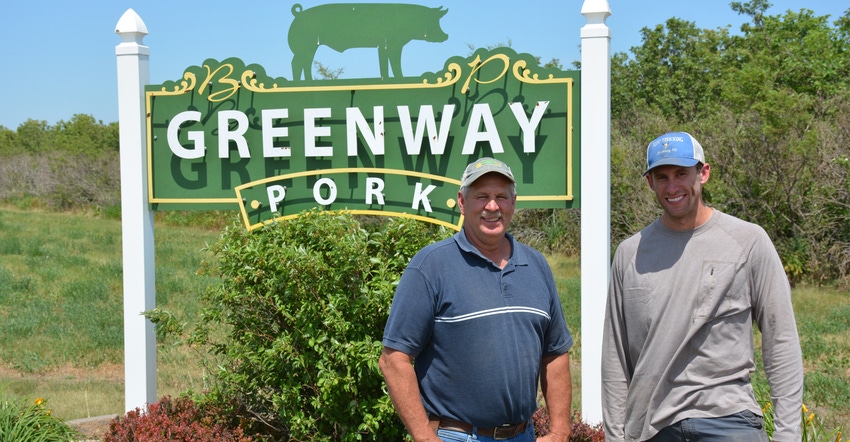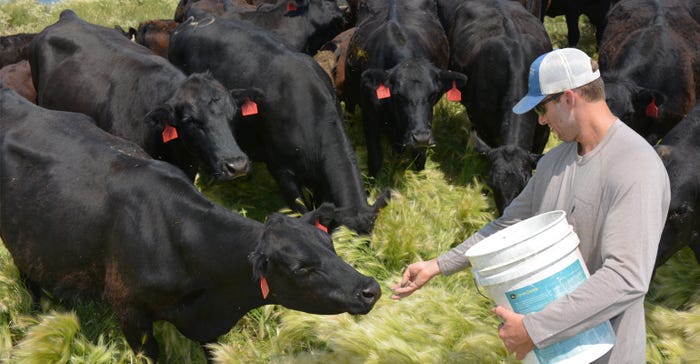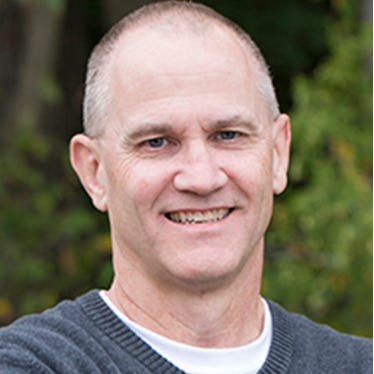
Sustainability is a term that gets thrown around quite a bit in today’s agriculture, usually indicating that a farm or agribusiness is operating in an environmentally friendly manner. Sustainability also pertains to an enterprise maintaining profitability to continue down the path of existence.
Brad and Peggy Greenway of Mitchell, S.D., hope that sustainability also extends to preserving their crop, hogs and cattle operation for the next generation and beyond.
Related: Telling ag’s story part of farm mission
The Greenways are part of Wholestone Farms, a pork packing plant in Fremont, Neb. In order to send their hogs to Fremont, the Greenways need to provide sustainability measures that are implemented on the farm and in the hog barns.
“Right now, two-thirds of our farmland is fertilized with our hog manure to grow the crops to feed it back to our pigs to produce a nutrient-dense protein for us humans,” Brad says.
Wholestone Farms is not the only processor with proof of sustainability measures, as the livestock production’s impact on the environment and the carbon footprint being used are continually in question.
Brad says the sustainable framework is to show what inputs are used for livestock production: “They want to know electricity, water, feed, distance traveled for the feed, natural gas or propane being used. Their ultimate goal is to track how much greenhouse gases or carbon footprint for each pound of pork produced at this plant. It’s a great story to be able to share this data with consumers — letting them know farmers care about environmental impact, and that our goal is to continue to improve.”
Sustainability through diversity
Maintaining the family’s sustainability is achieved by the operation’s diversity. In addition to the hog enterprise, son Brent bought the Simmental-Angus cow herd from Brad’s dad, Tom, in 2018. A year later, Brent left his job as an engineer at Trail King Industries Inc. in Mitchell and started farming full time with his parents.

In 2019, they started sharecropping Tom’s land. Tom was still able to help in the field on occasion up until spring. Tom passed away at the end of July at age 88.
In addition to Brent’s cattle, Brad has a herd of cows. They also farm:
2,600 acres of corn and soybeans
100 acres of winter wheat
300 acres of alfalfa
Over 800 acres of grass for grazing
Brad and Peggy built their first modern pig barn 15 years ago, and invested with 13 other producers in a sow farm — Bluestem Family Farms — that is managed by Pipestone Veterinary Services. Out of that sow farm, the Greenways receive pigs for their wean-to-finish barns, which produce about 14,000 hogs a year.
“We like to say we produce enough pork to feed 64,000 people,” Brad says.
The Greenways’ hog production has not always looked or felt like it currently does. He and Peggy had been farrow-to-finish, finishing the hogs in a hoop barn.
“Honestly, when it comes to raising pigs, I can say we could have sold every one as organic or dirt-raised,” Brad says, looking back on the hogs from their early production. “We changed for the right reasons, to be more efficient and provide better care for the animals. I’m not saying you can’t raise pigs outside, but for up here [in the Upper Midwest], the weather extremes make it very difficult to keep the pigs comfortable, which is our No. 1 priority.”
Before that change, Brent and his sister, Mandi, “were out there hands-on from the time they were small,” Brad says.
Peggy adds that their children would always help “process the pigs, move them from the farrowing house to the nursery, and from the nursery to outside every four or five weeks.”
Brent says working with the hogs was never his favorite part of farm life when he was a child. “We always joked that is was quality family bonding time, because that was the one chore that all four of us were out there when we did it,” he says.
Change for right reasons
Brent is happy with the changes in hog housing, and not just for the benefits to swine health.
“There have been hot days this summer where I’d be outside just sweating like crazy, and I’d go in the barn,” Brent says. “I was working on something in the barn and was as comfortable as could be. The misters would run one minute for every 10. You came out of there and thought, ‘I want to go back in the barn.’”
Comfort of the hogs and humans is obviously a benefit of the confinement barns, but there were also economic reasons to modernize the Greenway hog production.
“For eight years, we had pigs in hoop barns, and we compared those feed records with the new barn. The difference in feed costs was about $25 a pig more, and death loss was higher in the former hoop barn setup. Again, that’s the reason we switched. We care about animal comfort and about using natural resources wisely and efficiently. We feel that producing more pork every year while using less feed [land] and water is the responsible and sustainable thing to do.”
The addition of Brent to the operation has allowed the team to bring manure handling back into Greenway hands after having to rely on custom haulers before.
“We’d run into the timing issue,” Brent says. “It’s a really tight window on when it’s a good time to apply manure in the fall after harvest and not lose the full benefits.”
This past spring was the first time Brent did some dragline manure application. His return to the farm has also let him use his engineering training to help with the technical aspects of farm machinery and equipment repair.
In addition to Brent working back into the farm, Thomas Smith has been working with Brad and Peggy since 2008 and is now a vital partner in the operation. He specializes in crop protection application and the cow-calf herd, and helps with all activities on the farm.
Brent’s wife, Mollie, has an agriculture background and is a registered dietitian. Mandi and her husband, Cris Bietz, have three children and live in Mitchell.
About the Author(s)
You May Also Like






